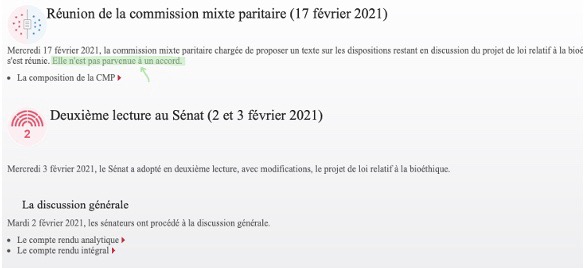This article has been translated and adapted from a previous article written in French by the same author for Linguistica; Wimbledon High School’s publication centred around foreign languages and culture. The original article is available here.
In France and North-West Europe, queer rights have experienced a large growth in the last few decades; every single one of these countries allow same-sex civil partnerships or marriage. We also see that this subject matter is being addressed across the pond; in February 2021 President Biden released a foreign policy statement, ordering international American agencies to promote LGBT+ rights abroad. Hence, it’s clear that France and other countries have made true progression in this area. Nevertheless, we must examine these advancements we’ve seen.
So, a bit of history for starters. In France during the 13th century, those accused of homosexuality were to be burnt at the stake or executed, however, this was not always the case. Homosexuality only truly became unacceptable and stigmatised in France as Christianity developed there. These discriminatory laws from the 13th century remained in place until the 18th century; the Penal Code of 1771 arising from the French Revolution made no mentioned of private, same-sex relations, subsequently legalising it. Therefore, France was the first country in Western-Europe to decriminalise homosexuality. That doesn’t mean LGBT people were suddenly accepted into society, same-sex relations and cross-dressing was still seen as immoral. Indeed, there was a brief law in 1960 which identified homosexuality as a cause of indecent exposure, prompting legal discrimination. However, since 1771’s decriminalisation, it would be another 196 years until homosexuality was permitted in private spaces in England, for example.
Now, the story is much improved from homosexuality merely ‘not being mentioned’ in law – since 1985, discrimination in the workplace based on homosexuality has been made illegal in France. In 1999, ‘Le Pacte Civil de Solidarité’ (PACS) allowed civil union between both straight and gay/lesbian couples. Today, members of the LGBT community enjoy the same rights in marriage as their straight counterparts, with the introduction of the 2013 law, ‘La Loi Toubira’, otherwise known as ‘Le Mariage Pour Tous’, (‘Marriage For All’). In addition, every year Pride parades take place along the streets of Paris.
As for the acceptance of French people towards LGBT rights, this too seems positive. In 2011, 63% of French people supported gay marriage, according to IFOP. In 2017 the figures grew, with 73% of respondents supporting gay marriage, according to Pew Research Center. Finally, in 2019 85% of French people were estimated to believe that lesbian, gay, bisexual and homosexual people should have rights on par with straight people – Eurobarometer. Thanks to these surveys, we can accurately paint a picture of public opinion towards queer people, which is very much growing towards favouring equality between those of different sexualities.
Despite this, not all is as it seems (is it ever?). There still remains strong tensions in France between those who support gay marriage and those who oppose it. The main French group against LGBT rights is called ‘Le Manif Pour Tous’, so-named in opposition to the 2013 law mentioned above, ‘Le Manif pour Tous’. ‘Le manif pour tous’ can be translated as ‘protesting for everyone’. Today, this groups claims to defend ‘traditional families’. In 2016, the group organised a march in Paris attracting 24,000 people, to demand candidates for the French presidential election support ‘traditional family values’ (by banning gay marriage). They failed.
Though the LGBT community has equal rights in law, they do not have equal access to services. La Procréation Médicalement Assistée, what we would call IVF, is actually still banned for lesbian couples, another example of opposition to LGBT rights in France. Right now, only women in heterosexual relationships can receive medical assistance in getting pregnant. However, it does seem that the situation is improving; in 2019 ‘Le PMA Pour Tous’ was proposed, which if adopted would open IVF to all French women, whether they be single or lesbian. This law’s recent progression can be seen below (it has taken 2 years to get close to adopting the law due to the pandemic)

The important text here is under “Réunion de la commission mixte paritaire (17 février 2021)” – the final step before a vote. It says: “On Wednesday February the 17th , 2021, the joint committee responsible for proposing a text on the provisions remaining under discussion of the bill on bioethics met. They did not come to an agreement.
So, we’re still waiting to see if this law goes through.
Perhaps unsurprisingly, this law has had varied reactions. On the 19th of January, thousands of opponents gathered on the street to protest against the opening of IVF to all women in France. And who was responsible for this mobilisation? Le Manif pour Tous, of course. The proposal is the object of fierce debate, stemming notably from the right-wing. On the other hand however, French public opinion does seem to be in favour of the law, according to a survey by Eurobarometer in 2019. At the moment, it’s not clear whether the law will be adopted as it is controversial, but this is progress none-the-less.
Another important element when evaluating the life of a French LGBT+ person is the level of homophobic hate crime. Unfortunately, the rate of such crimes is rising in France. According to SOS Homophobie, in 2018 these crimes increased by 33%, and in 2019 by 36% compared to the previous year, perhaps immediately stemming from the controversy around Le PMA Pour Tous. Physical violence represents 28% of these acts reported. The French government has responded to this problem with the introduction of a law banning online hate-speech -however, this is not enough to tackle the extent of the issue.
So, is France heaven or hell for LGBT people? There certainly is support in France for queer people; the state protects said people with laws on discrimination and rights. In addition, equality in law in France between straight and LGBT people is, for the most part, achieved. Le Mariage Pour Tous and Le Pacte de Civil de Solidarité have become integrated into French society and culture, a culture which is primarily liberal. The vast majority of French people support gay marriage, despite the loud protests of the few who do not. That being said, the fact that these rights remain somewhat controversial for certain people in France does show we’ve still got some way to go. Le PMA or IVF is still banned for lesbian (and single) women, whilst we see protests against any proposal to change this. Worryingly, hate crimes too are on the rise.
All in all, to be a member of the LGBT community in France is not extremely dangerous, nor must one repress oneself to live; when France is compared to Russia for example, it seems like heaven in comparison. But it’s not enough to just compare one more liberal country to one that is not – there is still clearly homophobia in France. France can do more to protect queer people, whether that be by attacking the problem of homophobia through stricter hate-crime legislation, or through opening up PMA to all women. There is certainly more to be done if we want to call France a ‘heaven’ for those of all sexualities.
